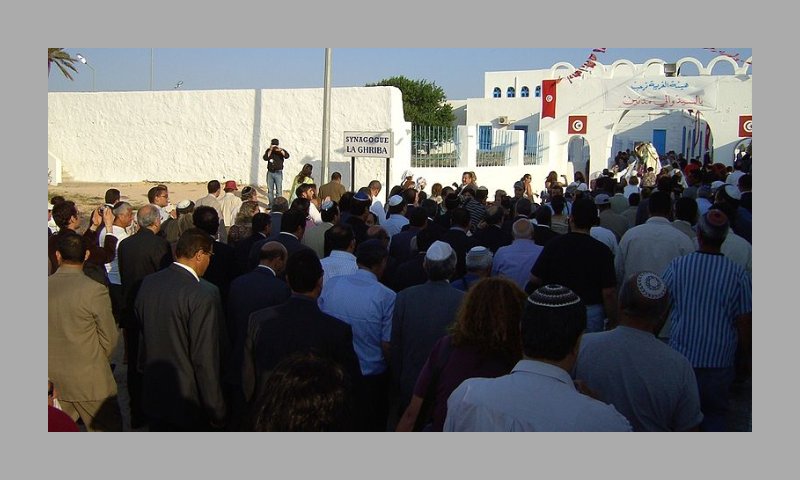Rachel Gilmore
Global News, June 13, 2022
“People live in Djerba, there are Jews here, and they go out into the souk with the kippa on their heads. It doesn’t bother anyone. There are no comments. It’s totally normal.”
Djerba’s historic El Ghriba synagogue is nestled on a small island off the coast of Tunisia, its entrance adorned with bright red Tunisian flags that guide tourists towards the serene white and blue building.
Just metres away from the modest synagogue, however, stone-faced soldiers shine a light on the dark history of persecution one of the oldest Jewish communities in North Africa has faced — including on the steps of this very building.
In 2002, Al-Qaeda detonated a truck bomb just outside the synagogue. Nineteen people were killed in the attack.
While security has since grown tighter, mid-May continues to mark the weekend Jews from around the world flock to the site for their annual pilgrimage. The event had to be cancelled in 2020 and 2021 due to the COVID-19 pandemic, but otherwise between 2,000 and 3,000 people — and sometimes up to 7,000 — Jewish people visit every year.
The same steadiness cannot be attributed, however, to Tunisia’s Jewish population.
In 1948, there were 105,000 Jews living in the North African country. That number has since dwindled to roughly 1,500.
… [To read the full article, click here]


